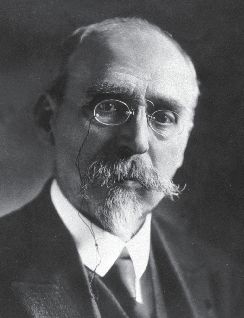Why was Ferdinand Buisson Awarded the Nobel Prize for Peace in 1927?
Exploring the Life and Legacy of a Visionary Advocate
Ferdinand Buisson: A Beacon of Peace and Education Recognized with the Nobel Prize
In 1927, the Nobel Prize for Peace was bestowed upon Ferdinand Buisson, a luminary in the field of education and a fervent advocate for social progress. Buisson’s unwavering commitment to promoting peace through education and his relentless efforts to foster tolerance and understanding among diverse communities marked him as a deserving recipient of this prestigious accolade. This article delves into the reasons behind Ferdinand Buisson’s Nobel Peace Prize win and explores his enduring legacy in the realm of peacebuilding and education.

1. A Visionary Education Reformer
At the heart of Ferdinand Buisson’s Nobel Peace Prize recognition was his revolutionary work in the realm of education. Buisson was a visionary reformer who believed that education held the key to building a more peaceful and harmonious world. He dedicated his life to reshaping educational systems, emphasizing the importance of fostering critical thinking, empathy, and cultural understanding among young minds. Buisson’s innovative ideas on education’s role in nurturing a culture of peace resonated deeply with the values upheld by the Nobel Committee.
2. Championing Religious Tolerance and Secularism
Buisson’s tireless advocacy for religious tolerance and secularism significantly contributed to his Nobel Prize win. In an era marked by divisions rooted in religious and cultural differences, Buisson championed the idea that a secular education system could serve as a bridge for understanding and acceptance among diverse communities. His efforts to create a neutral educational environment, where individuals from various backgrounds could coexist and learn, exemplified his commitment to building lasting peace through cultural exchange and mutual respect.
3. Promotion of Social Justice and Human Rights
Ferdinand Buisson’s commitment to social justice and human rights further solidified his candidacy for the Nobel Peace Prize. He believed that education was a tool to empower individuals, enabling them to challenge inequality and advocate for their rights. Buisson’s active engagement in social reform and his dedication to addressing issues of inequality and discrimination highlighted his multifaceted approach to peacebuilding, extending beyond diplomacy and conflict resolution.
4. International Influence and Collaboration
Buisson’s impact extended beyond his native France, as his ideas and initiatives resonated globally. He played an instrumental role in international organizations dedicated to education and peace, further amplifying his influence. Buisson’s collaboration with like-minded individuals and his participation in efforts to promote cross-cultural understanding demonstrated his commitment to a unified global vision of peace and cooperation.
5. Enduring Legacy and Inspiration
Ferdinand Buisson’s Nobel Peace Prize win in 1927 left an enduring legacy in the fields of education and peacebuilding. His emphasis on education as a catalyst for positive change continues to inspire educators, policymakers, and activists around the world. Buisson’s dedication to fostering tolerance, secularism, and social progress underscores the profound impact that individuals can have in shaping a more harmonious and equitable society.
Ferdinand Buisson’s Nobel Peace Prize win in 1927 celebrated his visionary contributions to education, social justice, and cultural understanding. His innovative ideas on the role of education in promoting peace and his relentless pursuit of a more inclusive and equitable world left an indelible mark on history. Buisson’s legacy serves as a powerful reminder that the path to lasting peace is paved not only through diplomacy but also through the transformative power of education and the promotion of fundamental human values.




